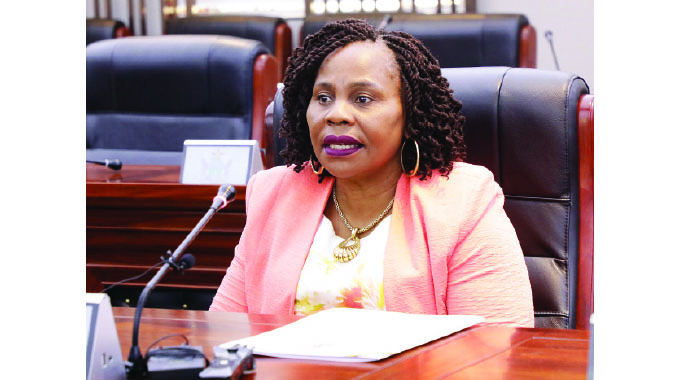Govt moves to contain climate induced hazards

The Herald
10/11/2021
Zvamaida Murwira-Senior Reporter
A cocktail of measures has been developed to contain climate-induced hazards as Zimbabwe moves into the summer cropping season whose preparation is now at an advanced stage, Information, Publicity and Broadcasting Services Minister Monica Mutsvangwa said yesterday.
Speaking after the Cabinet meeting yesterday, Minister Mutsvangwa said Cabinet received and approved the proposed emergency preparedness plan for the rainfall season presented by Local Government and Public Works Minister July Moyo, who is chairperson of the Cabinet Committee on Emergency Preparedness and Disaster Management.
“The nation is informed that climate-induced hazards are on the increase, particularly in Zimbabwe and generally in the SADC region as they are becoming more complex to manage, she said.
“These hazards include droughts, floods, hailstorms, lightning, and strong winds.
“The country has also witnessed increased incidents of a geo-physical and human-induced nature such as landslides, earthquakes, environmental degradation, veld fires, plus road, rail, air, watercraft, mining and industrial accidents, spillages and explosion of industrial chemicals.”
Several measures have been adopted by Cabinet to reduce losses should disaster strike.
“Cabinet is pleased to report that the emergency preparedness plan has been put in place with a view to reducing potential losses due to disasters.
“The implementation of the plan will be spearheaded by the Civil Protection Unit and consists of a number of programmes. These include education and awareness on hazards related to the rainy season, raising alarm and alert mechanisms using indigenous knowledge systems and local resources, assisting in rapid and comprehensive damage assessments and setting priorities, implementing response and recovery programmes, providing appropriate equipment and machinery, and instituting effective early warning systems.
“Government has set aside adequate financial resources to cover the set programmes and stakeholders have been directed to commence drills in anticipation of any eventuality.”
In 2019, Zimbabwe was hit by Cyclone Idai which claimed over 300 lives and left a trail of destruction in Manicaland and some parts of Masvingo provinces and led to a major revision in responding to cyclone warnings with subsequent cyclones seeing pre-positioned relief supplies, arrangements made for evacuation if necessary, and far better warning for communities.
Some low-lying areas including Muzarabani in Mashonaland Central province, have been prone to flooding.
The disaster management preparations come as Government has intensified preparations for the summer cropping season which has seen more than one million women farmers being trained under the Government Climate Proofed Presidential Inputs programme, better known as Pfumvudza/Intwasa.
A good harvest will help in the attainment of Vision 2030 of an empowered upper middle income status.
Pfumvudza promotes climate-proofed agriculture, by adopting conservation farming techniques and involves the use of small plots and then applying the correct agronomic practices for higher returns.
Distribution of inputs has since started as farmers anticipate good rains.
